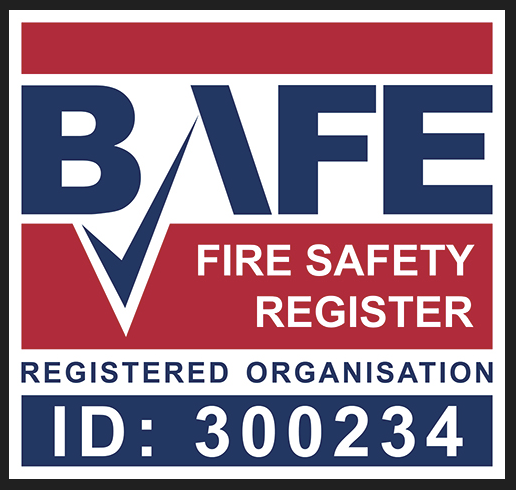Industry Articles
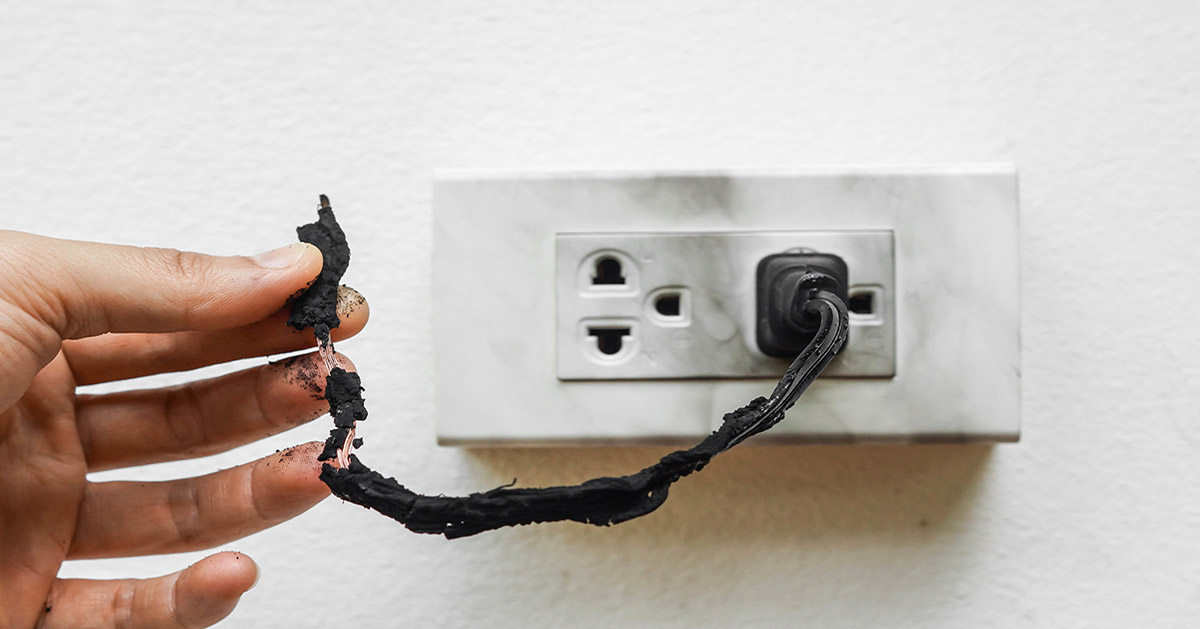
What you need to know about Electrical Fires
Every day an average of four people are injured or killed as a result of an electrical fire in the United Kingdom. In the past couple of years over half of the fires in Great Britain have been a result of electrical fires.
With more electrical devices being introduced into homes and establishments all across the nation, these numbers will continue to increase if people remain unaware to the dangers and the little ways they can prevent any damages to their homes, families, workplaces and lives.
There is plenty of information available on how you can keep yourself and others safe by preventing electrical fires.
So, whether you need to know more on how to protect the residents of a care home, keep fire risks low in your office or make sure you’re safe in your new apartment block at uni, Dorset Fire Protection is committed to providing a supreme service tailored to you.
Fires spread fast. There’s no other way to put it. In just two minutes, a fire can become life-threatening. In five minutes, a building can be engulfed in flames. Knowing how to prevent and extinguish them can be life-altering.
We’re committed to helping you to be more aware so that if an emergency does occur, you’ll have the best advantage possible to stay safe. Improving your electrical fire safety could prove to be invaluable one day.
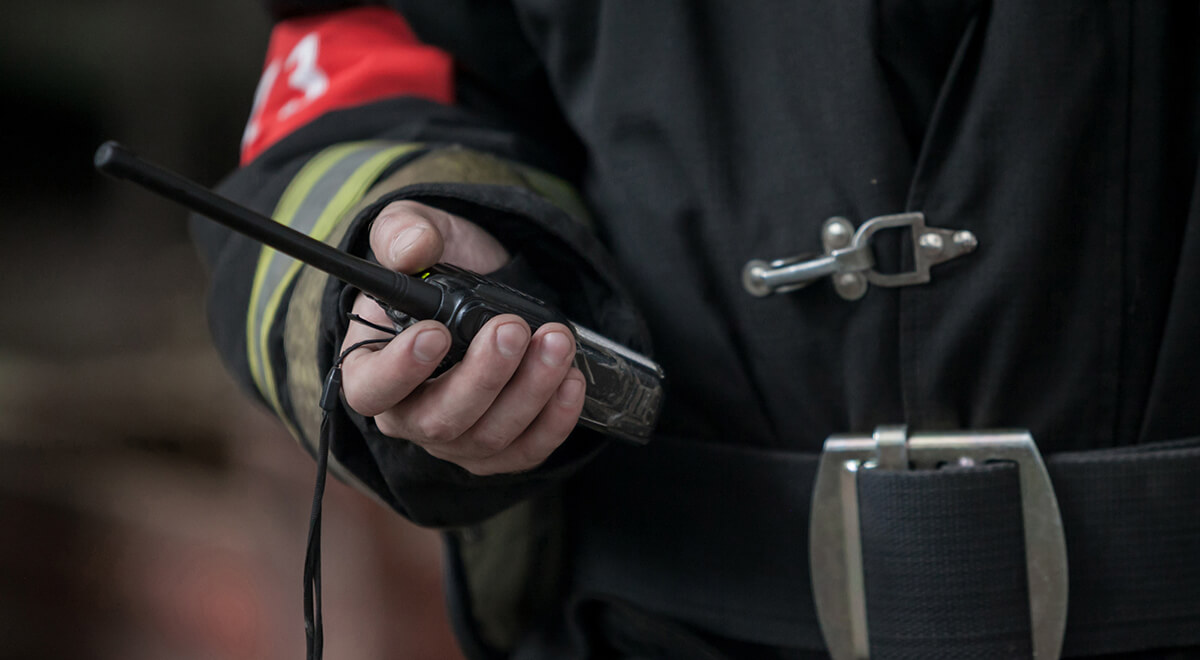
How to put out an electrical fire?
Awareness and prevention is key to ensuring that you lower the threat of electrical fires damaging the lives of those around you and yourself. However, in the unfortunate outcome that one does occur, knowing how to put out an electrical fire could prevent loss of valuable property, personal items and life.
First and foremost, after discovering the source of smoke or fire, the fire should only be extinguished if it is safe to do so. The number one priority is ensuring you do not put yourself or anyone else at risk.
If the fire is already beginning to spread or you do not have the suitable equipment, you and anyone else in the area should leave immediately via the safest route and then call the fire service.
Upon discovering a fire and evaluating it is safe to proceed, turn off the source of power connected to the electrical device. If this is not possible, proceeding to tackle the blaze can become increasingly dangerous as it minimalises possible extinguishing options.
Maintaining a charged connection can hinder any attempts to extinguish it and either cause it to get worse or re-ignite. Oxygen, heat and fuel are the three elements required for any fire to start so attempting to stop a fire requires removal of one or more of these criteria.
When an electrical appliance overheats the fuse will blow quite quickly (heat) and there is often not much to burn in the plug or appliance itself. However, the danger is what other combustible material close by will be ignited, such as paper, sawdust, cardboard (fuel).
Air contains about 21 percent oxygen and most fires require at least 16 percent oxygen content to burn. Therefore, smothering a small fire before it spreads can be effective for putting out an electrical fire in its early stages.
A flame-resistant fire blanket, specifically designed to withstand fires at high temperatures, can remove the oxygen from a fire and prevent further damage. However, they must be used with care as they often require close proximity to the flames.
If a blanket is not large enough to cover the flames, do not attempt to do so. Authorities should still be contacted at any stage of a fire, even if a fire blanket has been laid, as the threat may still exist.
A key tool for putting out any fire is a fire extinguisher but when it comes to electrical fires, it is imperative to use the correct type.
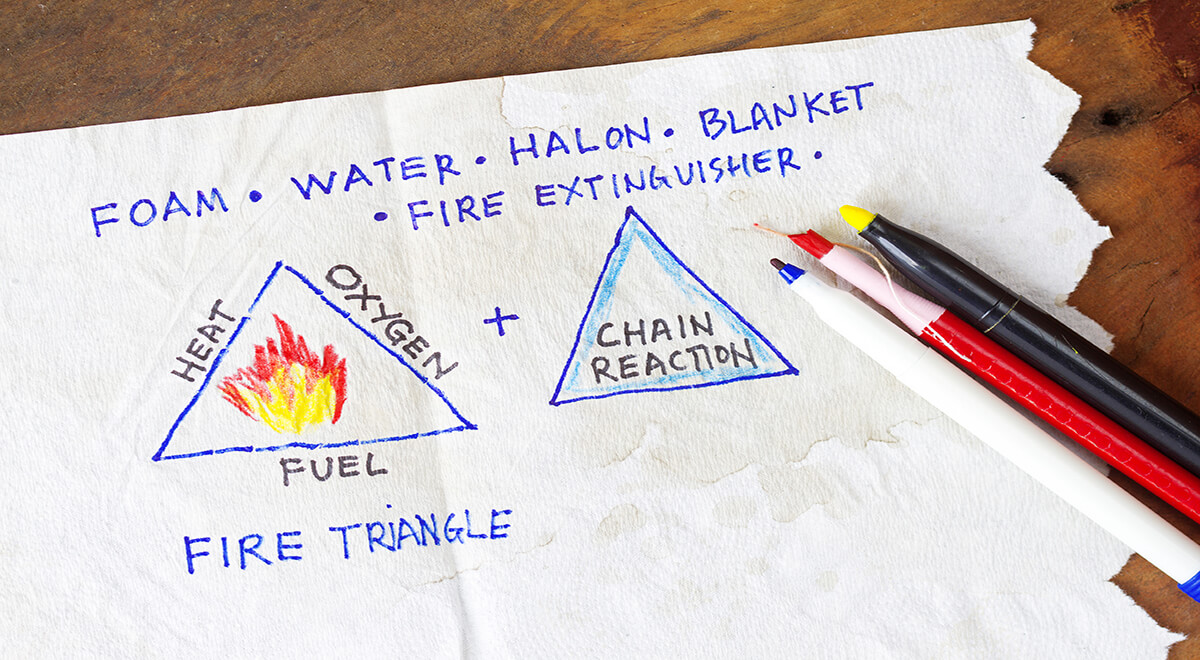
What fire extinguisher to use for electrical fires?
Using the wrong fire extinguisher can have a detrimental and destructive impact on an electrical fire. As water and foam have the ability to conduct electricity, even after the power source has been cut off, you should not attempt to apply water or foam extinguishers to the flames.
Carbon Dioxide and dry powder fire extinguishers are the only types of fire extinguishers recommended for tackling electrical fires safely. A powder extinguisher may leave residue that can damage sensitive equipment so a CO2 extinguisher is always preferable.
Electrical fire extinguishers, like all fire extinguishers, are colour coded for quick and efficient recognition. So what colour is the label on the extinguisher required for an electrical fire?
Black.
A CO2 fire extinguisher is red with a black panel and a distinctive black horn.
The value of the right fire extinguisher in the right place, at the right time, is something that thousands of people can agree with. At Dorset Fire Protection we’re more than happy to help you prepare for any unplanned emergency by providing the most efficient layout for your fire extinguisher.
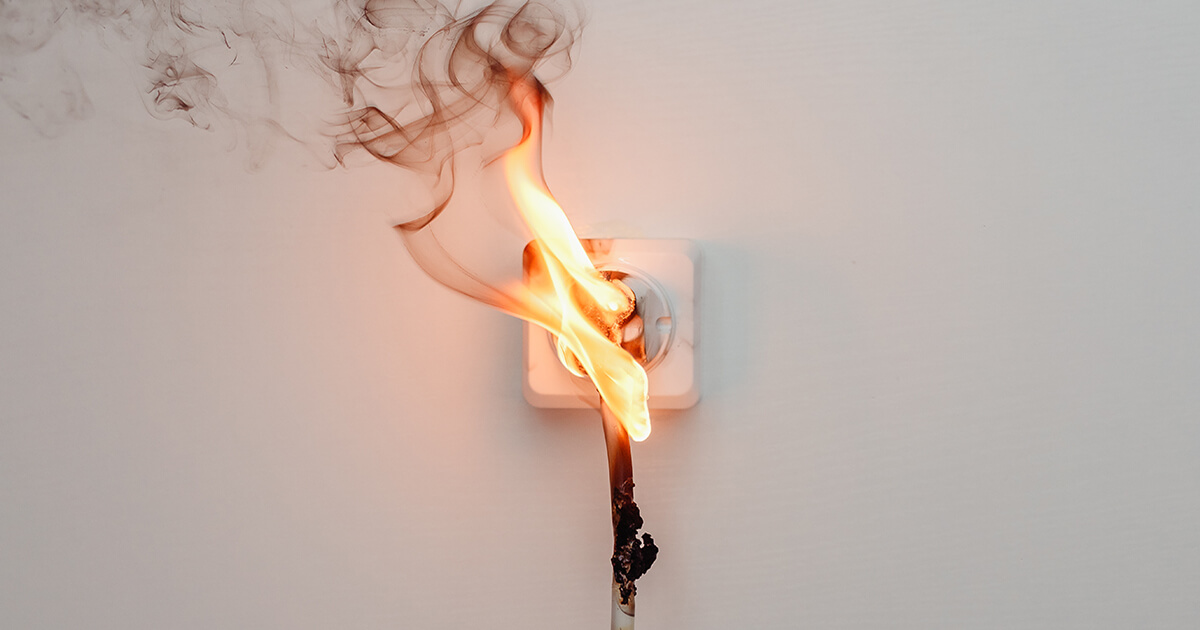
How to prevent electrical fire?
Preventing an electrical fire in your business or residence shouldn’t be a laborious or difficult task.
With the correct approach and small life changes, you can increase your electrical fire safety and the likelihood of an electrical fire beginning in your house can be reduced drastically:
- Always use light bulbs that are the recommended wattage for the fixture or lamp.
- Do not overload the outlets. If additional circuits are necessary, consult with an electrician.
- Only use portable space heaters with a safety mechanism that shuts them off if they tip over. Do not leave them on overnight or place them next to combustible materials.
- Discard all cords and plugs that are worn or frayed.
- Make sure electrical appliances have a British or European safety mark when you purchase it.
- Do not charge electrical devices when you go to bed, overcharging could increase the risk of fire.
Most electrical fires do occur due to the damage to equipment or poor maintenance. Overused equipment or products that do not adhere to standards can be key perpetrators in electrical fires starting.
Regular PAT testing (the process of checking electrical equipment for safety) ensures that devices and equipment are operating to an approved and safe standard.
A competent and trained testing engineer from Dorset Fire Protection can be hired to perform these tests in order to enhance your electrical fire safety. Performing a blanket PAT test of all appliances every year provides peace of mind and a visual list depicting the outcome of the tests on individual items.
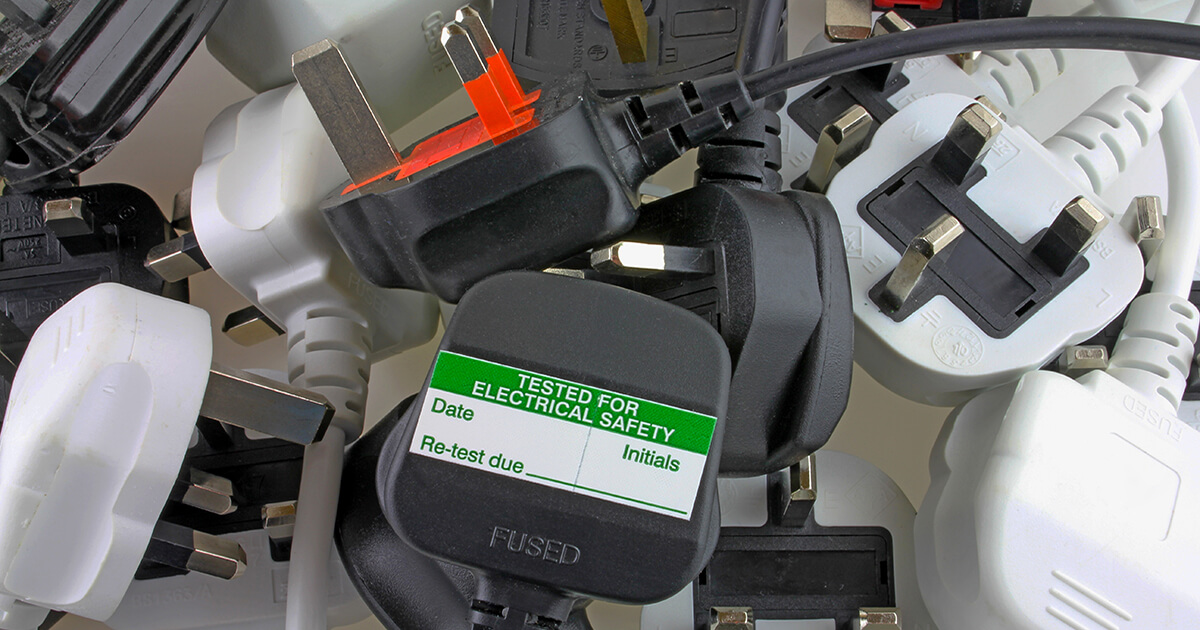
5 electrical fire safety tips
1. Take tailored IFE approved Fire Safety Training courses. We provide hands-on, engaging courses to make sure you’re aware of how to act should a fire occur in the future.
2. Keep up the PAT testing and other equipment maintenance. Ensure correct fuses are fitted and quality is chosen over price (trust the CE mark).
3. Ensure homes, workplaces and other establishments are kept tidy and electrical items are not left unattended for long periods of time. Tidy places with low amounts of clutter and combustible materials will ensure the spread time is reduced.
4. Be prepared. Ensure your fire alarms are tested regularly. Early warnings to fires are a key part of fire safety. Making sure safety lighting is clear and working will enable a more efficient evacuation process in the midst of an emergency.
5. Understand the risks. Assessing the levels of risk and evaluating how safe your building is can make you aware sooner rather than later about the emergencies that could occur. Being smart and prepared is one of the valuable tools for fire safety.

At Dorset Fire Protection, it is our mission to provide world-class pre-emergency service to help prevent disasters. It is our job to formulate fire safety solutions, inspire trust and remove stress whilst exceeding all expectations. From small beginnings, we now have big plans to keep people safe and prepared.
We believe in our cause so that you can believe in us. So if you need advice on how to prevent an electrical fire in your workplace, let our experienced team assist you. Get in touch now by calling 0330 7000 555 or emailing us at [email protected].
This article was written by Gary Askew, Managing Director of Dorset Fire Protection.
He has over 20 years of experience of supplying fire prevention measures and finding premium solutions.




